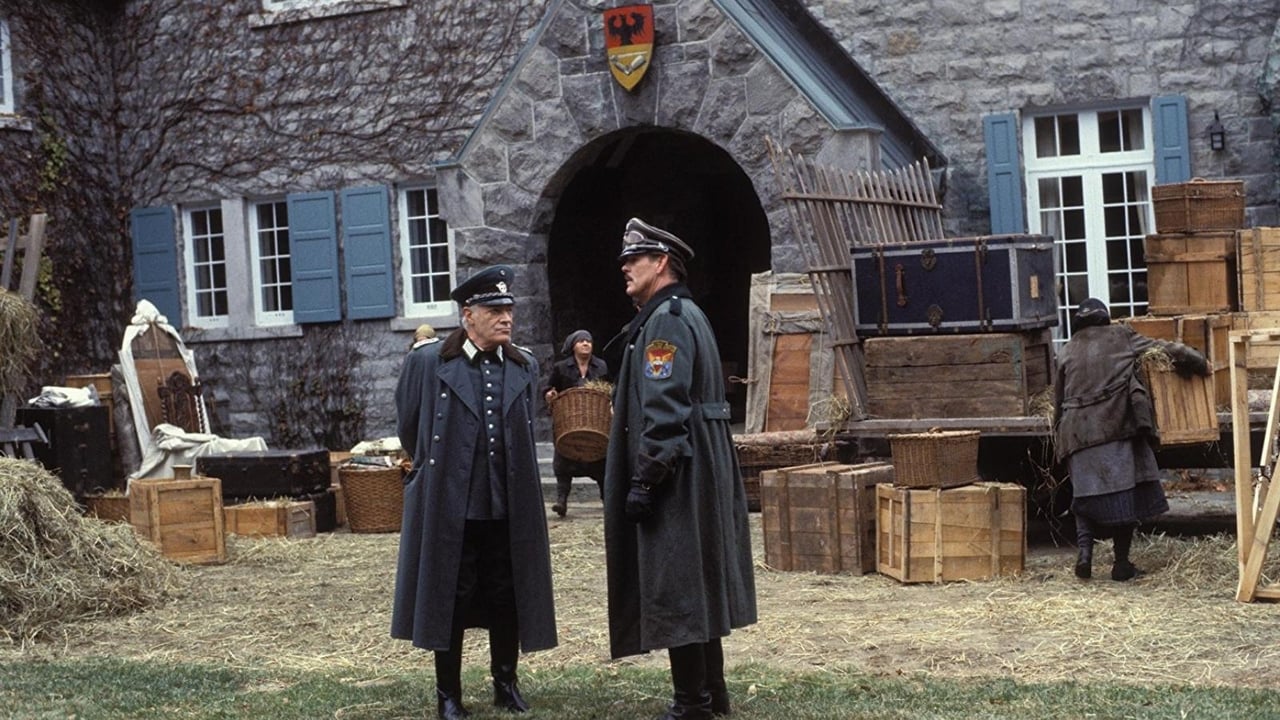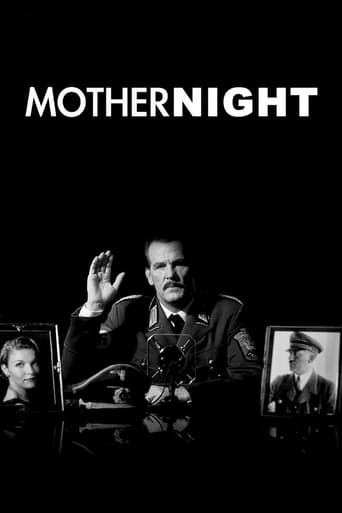

Given the track-record for adaptations of Vonnegut novels, I was pleasantly surprised at how faithful this film is to the original source material (with one glaring and near-fatal exception near the end). It is also handsomely-made and features fine performances from everyone involved, especially Nick Nolte. The problem is that the tone is all wrong. The power of Vonnegut's novel is its black humor, which is completely lacking here; in the novel, Howard W. Campbell's story, despite being rooted in WWII and the Holocaust, is a farce that ultimately brims over with moral outrage; here is it more of a arty tragedy.
... View MoreHere's an exercise; Read a Kurt Vonnegut novel, notice the pathos and poetry, the black humour, the beauty of the language and ultimately the feeling of having become a little wiser about the Human race.Now watch this detached, soulless drudgery of set pieces and three act tedium. Nolte destroys any attempt trying to portray the tragedy here, going for a weary and bored performance. And weary and boring it is, you can see where the money has been spent but not one cent results in translating Vonnegut's poetry to this medium.It's sad to think of the few million dollars that was flushed down the tubes for this inept and insipid waste of film. It's one and only saving grace is a moving glimpse of the author as a passerby, in ten seconds of silent screen time Vonnegut himself packs more pathos and humanity than this turgid effort manages in nearly two hours.
... View MoreWhen one reads Mother Night, there is a sense of worldly indifference amongst all its main characters. Kurt Vonnegut's Howard J. Campbell Jr. is a broken old man who has lost any idea of his own identity. In fact, the only truly fascinating aspect of Vonnegut's Mother Night is the exploration of Campbell's internal evolution from apathetic artist to American spy to devout Nazi to depressed prisoner. The plot, quite frankly, is just a cliché tale of a wartime spy not being appreciated at home.Unfortunately, this movie failed to do anything but capture this clichéd plot. Campbell's schizophrenic analysis of his own behavior, his commentary on the behavior of 'the Eichmanns of this world' and his hilarious, dark prose are all neglected in the adaptation of Vonnegut's masterpiece. It looks as if Robert B. Weide (screenplay) simply jotted down a few key moments from the novel, and left it to a poor group of actors to figure out what to do with them. And while IMDb users are heaping praises upon Nick Nolte for this performance, it was atrocious. It is obvious that Nolte has never read a Vonnegut novel. Vonnegut's Campbell rarely displayed emotion, but Nolte was showing off his amateurish acting abilities like this was the final scene in Hamlet.The only value that Mother Night (the movie) can offer is a few well-thought out, richly symbolic scenes. Beyond that, Weide and Keith Gordon failed to bring any of Vonnegut's greatness to Hollywood.
... View MoreScreenwriter Howard Campbell is recruited to serve in counter-espionage during World War 11. He moves to Nazi Germany and marries an actress whose family is faithful to their Fatherland. Campbell, portrayed well, by Nick Nolte broadcasts vitriolic propaganda for the Nazi Regime. Truth is that few people really know what Campbell is up to.The war ends and Campbell, with his wife presumed dead, heads to N.Y. for a new unassumed life. Here is where the picture falls apart. After several years, without anyone knowing him, Campbell assumes his real name.At this point, as stated, the film deteriorates into a series of unlikely events. A neighbor turns out to be a Communist spy. who notifies an Aryan supremacy group of Campbell's existence. The latter's dead wife suddenly shows up only to reveal later on that she is the sister of his dead wife. Still later, she is revealed to be a Communist as well. Too much is going on.Campbell eventually gives himself up and in flashbacks, sits in a cell and talks to Adolph Eichmann.We even have a suicide at the very end. I think this might have been to take the audience out of its agony from viewing all this.The picture really had a lot of emotionally sick people in it. At times, Campbell was so viciously good at reciting his anti-Jewish denunciations, you'd really begin to wonder if he meant it.
... View More